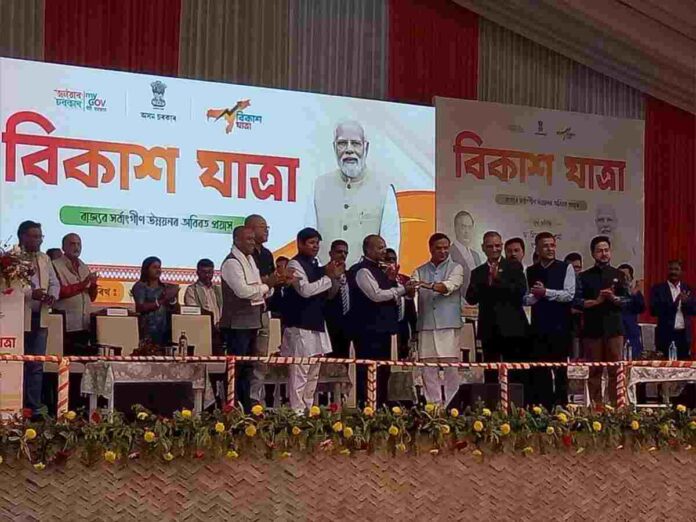In line with the vision of Hon’ble Prime Minister of health and wellness for everyone; 20 ambulances were today handed over to Government of Assam hospital authorities procured by Public Sector Undertaking GAIL (India) Limited under its Corporate Social Responsibility (CSR) program. Hon’ble Chief Minister, Assam, Shri Himanta Biswa Sarma and Hon’ble Union Minister of State for Petroleum and Natural Gas & Labour and Employment Shri Rameshwar Teli, were present on the occasion.
Realising the need for ambulance services in remote areas of Assam including Dibrugarh and Tinsukia districts, the project was conceived by Hon’ble Union Minister of State for Petroleum & Natural Gas and Labour & Employment and Member of Parliament, Dibrugarh. He desired quick and easy access to healthcare for the people of Assam and GAIL, executed this very promptly as part of its corporate responsibility.
GAIL Executive Director (CSR & HR) Shri Anoop Gupta and other senior officials of Assam Government and GAIL attended the handing over event to contribute in the Vision of Government of India’s of health and wellness for everyone; which includes physical, mental and social well-being. This event is a part of Project Arogya, a flagship CSR Project of GAIL, a PSU under the Ministry of Petroleum & Natural Gas.
These ambulances were procured by GAIL at a cost of Rs 2.15 crore were handed over to Government hospital authorities. These are Maruti Eeco vehicles appropriately fabricated as ambulances and including autoloader stretcher, stretcher, IV stand, two oxygen cylinders, basic first aid, oxygen mask, flow meter, attendants’ seating, siren, public address system, etc. in compliance with National Ambulance Code.
Last week, Shri Rameswar Teli had flagged off seven Mobile Medical Units (MMUs) in Dibrugarh district. The MMUs will operate under the CSR project of GAIL. The GPS tracked MMUs shall cover about 60 km every day and provide medical services to around 80 patients daily. In addition to these, low-cost sanitary napkins are also distributed to adolescent girls and women. Basic diagnostic tests are also undertaken through these MMUs.
Services of the MMUs and ambulances will support the needs of people from remote towns and villages and will considerably bring down the average medical expenses of these families.



